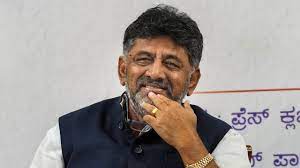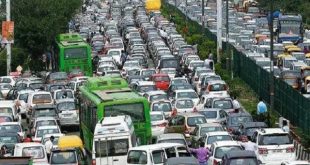Bangalore. With the announcement of the assembly election schedule in Karnataka by the Election Commission, the fight for power among the political parties has intensified. It remains to be seen whether the ruling Bharatiya Janata Party (BJP) breaks a four-decade-old trend and creates a record of winning two consecutive assembly elections in the state or whether the Congress will return to power and mount a challenge in the wake of the 2024 Lok Sabha elections.
In Karnataka, since 1985, no political party has been able to win the assembly elections for two consecutive terms. The BJP is keen to rewrite this history and retain its stronghold in South India. Congress is keen to capture power to boost the morale of party workers to establish itself as the main opposition party in the 2024 Lok Sabha elections.
Triangular competition expected this time too
At the same time, it also needs to be monitored whether the Janata Dal (Secular), led by former Prime Minister HD Deve Gowda, will emerge as the ‘kingmaker’ by playing a key role in the formation of the government in case no party gets an absolute majority. Will be able to Congress and JD(S) have released their first list of candidates for 124 and 93 seats respectively. Like in the last two decades, the May 10 election in Karnataka is expected to see a triangular contest this time too, with Congress, the BJP and the JD(S) in most constituencies.
While the Aam Aadmi Party (AAP) is also trying to make some inroads in the state, other smaller parties such as mining baron Janardhan Reddy’s Kalyan Rajya Pragati Paksha (KRPP), Left parties, Bahujan Samaj Party, SDPI (Banned Popular Front of of India (PFI) and All India Majlis-e-Ittehadul Muslimeen (AIMIM) led by Asaduddin Owaisi will contest on select seats.
Anti-incumbency wave important factor in Karnataka elections
Political observers believe that the anti-incumbency wave is an important factor in the Karnataka elections, as the electorate has not given a continuous mandate to any party. This last happened in the year 1985, when the Janata Party led by Ramakrishna Hegde came back to power. The Vokkaliga segment of the old Mysuru (South Karnataka) region is dominated by the JD(S).
While the vote base of the Congress is spread evenly across the state, the vote bank of the BJP is evident in the north and central regions due to the presence of a large number of people from the Veerashaiva-Lingayat community. Lingayats constitute about 17 per cent of the total population of Karnataka, Vokkaligas 15 per cent, Other Backward Classes (OBC) 35 per cent, Scheduled Castes/Scheduled Tribes 18 per cent, Muslims about 12.92 per cent and Brahmins about three per cent.
BJP wants to avoid 2018 like situation
The BJP has set a target of winning at least 150 seats to ensure absolute majority in the assembly. The BJP wants to avoid a 2018-like situation, when it missed out on forming the government despite initially emerging as the single largest party, and later relying on defection of Congress and JD(S) MLAs to retain power. Was lying.
BJP intensifies election campaign in Karnataka
BJP’s election campaign is going on in full swing with Home Minister Amit Shah and BJP President JP Nadda being in the poll-bound state, apart from Prime Minister Narendra Modi’s frequent visits to Karnataka. But, to regain power, the BJP will have to take on a belligerent Congress, which has tried to make corruption a central topic of political discussion.
Political parties can raise these important issues in the campaign for Karnataka elections:
Corruption: The recent arrest of BJP MLA Madal Virupakshappa and his son in a bribery case has put the ruling BJP on the back foot. The Congress has made corruption a major theme of its election campaign, pointing to various ‘scams’ and the 40 per cent commission charged by the body of contractors.
Reservations: The Karnataka government has announced its decision to scrap the four per cent reservation for ‘religious minorities’ and add it to the existing reservation for the two major communities in the state. The four per cent reservation for minorities in Karnataka will now be distributed equally and added to the existing reservation for Vokkaligas and Lingayat communities in the state. Two new reservation categories 2C and 2D were created for the Vokkaligas and Lingayat communities during the Belagavi assembly session last year. The Karnataka cabinet decided to bring religious minorities under the Economically Weaker Section (EWS) category.
Development: The BJP will try to focus on the various development projects and social welfare initiatives launched by the Modi government, while the Congress and the JD(S) will showcase their track records while in power.
Inflation: Congress and JD(S) will make this a major issue, especially the rising prices of cooking gas and fuel. BJP’s election campaign on the government’s management during the COVID-19 pandemic, the economic progress made during the Modi government’s tenure and how a rising India has become the world’s fifth largest economy,
 Indian Thought Latest News & Views
Indian Thought Latest News & Views

